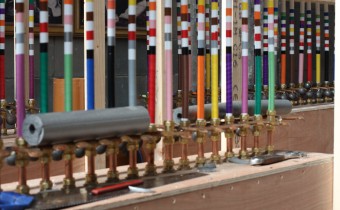How we are not helping to inspire youthful innovation in specialist music
Punk, grunge and rave amongst several other subcultures were all born out of a youthful desire to create something new. But when these movements caught the attention of the wider world and became commodified, their young creators moved on to the next thing, repeating the cycle.
Although it’s been a while since a youth subculture struck fear into the hearts of parents like emo or gangsta rap did, current Hip Hop group Odd Future managed to cause as exemplified in a 2012 Newsnight feature. Amassing a huge cult following with their home-made, DIY aesthetic and notorious raucous shows, comparisons to punk were naturally made. The group have also managed to capitalise on street-wear being in vogue, setting up a permanent store in their native L.A. and pop shops wherever they tour. However despite sub genres still existing, nowadays teenagers are more associated with mainstream music whilst young 20 and 30 some-things lead the way in innovation. Why aren’t younger audiences more interested in specialist and independent forms of music?
Firstly, it must be noted that in the UK, the state has had a hand in stifling organic, grassroots genres. Back in the 70’s The Sex Pistols caused widespread outrage after their infamous TV interview with Bill Grundy. The band becoming a household name proved to be detrimental as many of their shows on the Anarchy Tour were cancelled by frightened local authorities. Rave received a similar adverse public reaction to the illegal parties and heavy drug use, eventually leading to the 1994 Criminal Justice and Public Order Act. For such a spontaneous scene this of course was a massive blow.
Recently history repeated itself as internet TV Show, Just Jam saw their live event at the Barbican in London cancelled. Following a week of workshops for young people, Just Jam planned on making the move from online to live with an event featuring diverse line up of performers from Omar Souleyman to grime duo Newham Generals. After consultations with the City of London Police the Barbican decided to cancel the event claiming it was in the name of “public safety.” Likewise the introduction of “risk assessment” form 696 by the Met Police made it a requirement for venues to provide extensive information of performers and originally as Dan Hancox of The Guardian reported back in 2009, the ethnic make-up of crowds for club nights. The revised version still explicitly targets music that “predominantly features DJs or MCs performing to a recorded backing track”. As club promoter David Moynihan told Hancox the police even stated that ‘grime, garage, rap, reggae or R&B’ was not allowed to feature at a Tower Hamlets community festival.
The likes of Dizzee Rascal were mere teenagers when they spawned a whole new genre and DJ Geeneus was just 16 when he started pirate (now legal) radio station Rinse FM.
Licensing laws also make it incredibly hard for under 18’s to experience live music with many venues having deals with alcohol companies and drink sales being a vital source of revenue. The success of Underage Festival and under 18 club nights like UTR have shown that younger audiences have an appetite for music beyond the commercial realm if the right conditions are provided.
It can be easy to blame the TV talent show machine X Factor for glorifying commercial success and dangling a golden carrot but when more radical scenes are stifled it is understandable that such seemingly easy paths to fame are attractive. Also in the current economic climate with youth unemployment at 19.1%, making specialist music is a less viable choice.
The link between young people making specialist music and consuming it is important, as by creating something fresh there’s a sense of ownership. Instead of encouraging young audiences to fit into old forms, I say we facilitate their innovation. Workshops like Just Jam’s and platforms like London youth radio station, Reprezent give the opportunity for young people to not only receive invaluable training, but to play by their own rules. When youth centric scenes happen peer to peer sharing is inevitable, increasingly so given technology nowadays, what is needed is the content itself.
In the age of computer based production, it’s easier to make music and it will be exciting to see what developments will occur in years to come. Hopefully there will be imaginative young people out there with boundary pushing ideas that shy away from the mainstream.



